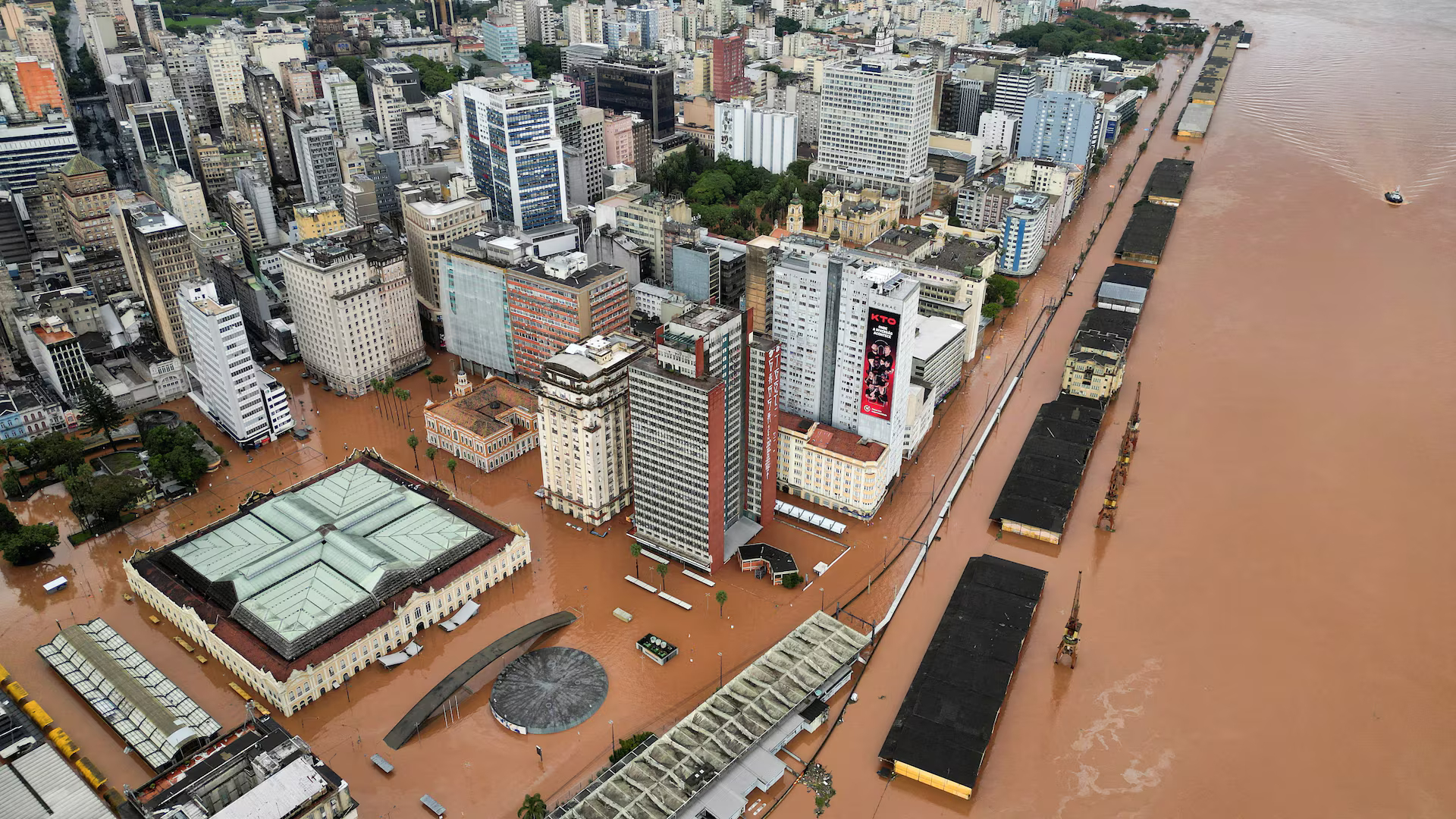As many as 450 municipalities in southern Brazil have been badly hit as the country faced unprecedented floods caused by unusually heavy rains. Over 150 people have been killed, 540,000 individuals have been forced to leave their dwellings and another 76,000 families have been displaced and are living in shelters, according to the Brazilian government data. Furthermore, over 90% of businesses have been submerged, bringing their operations to a halt and stalling the local economy.
See also: “My city is underwater, and climate change is going to change it forever”
The floods that ravaged Rio Grande do Sul, a state in southern Brazil, have swept everything away. In a matter of minutes, entire families lost homes, clothing, food, and material possessions with the achievements of a lifetime being carried away by the force of the water. Environmental tragedies of this magnitude only exacerbate inequality and bring more hunger and disease into daily lives.
State aid
When Brazilian President Lula da Silva visited a shelter for displaced families in São Leopoldo, he pledged to rebuild homes affected by the floods.
“There will be credit for recyclable material collectors, for domestic workers, for entrepreneurs, for everyone, and for housing for the middle class,” said Lula. “We will try to standardize this country. Nobody likes to be poor,” he added.
As an emergency measure, the government has announced an aid package of R$ 5,100 (approximately US$1,000) for flood victims to purchase construction materials, appliances, and furniture. It is estimated that nearly 200,000 families will benefit from R$ 1.2 billion (US$220 million). In addition, the Brazilian state has promised to offer zero-interest credit lines to those who have lost their houses to flooding.
In Porto Alegre, the capital of Rio Grande do Sul, 30% of the city has been affected by the floods, and 45,000 businesses have been forced to close, according to city hall. In just the first week, the damage amounted to R$ 500 million (US$100 million) and, by the end of the month, it is estimated that losses will reach R$ 1.5 billion (US$300 million).
The federal government has stated it will invest at least R$ 63 billion (US$12.6 billion) by the end of next year.

War budget
In addition to the announced aid, some have advocated for the creation of a “war budget” similar to that adopted during the Covid-19 pandemic. This would allow the government to release funds beyond the annual spending limit.
Fernanda Melchionna, a deputy from Rio Grande do Sul and an author of one of the “war budget” proposals, argues that it is essential to adopt not only recovery measures but also to prepare the state for new episodes of heavy rainfall, as environmentalists claim that climate change will intensify extreme weather events in the future.
Experts have suggested, among other solutions, the need to build higher bridges or even relocate cities originally built in valleys to areas that are less prone to flooding.
“The alert and monitoring systems themselves need to be expanded. Climate change is here, and we need to mitigate the impacts of a new normal that, unfortunately, is here to stay in terms of environmental catastrophes,” Melchionna argues.
An initial estimate from the government of Rio Grande do Sul put the amount required to address the impact of the floods at R$ 19 billion (US$ 4 billion). For the reconstruction of bridges alone, a cost of at least R$ 3.6 billion is estimated, and about R$ 5 billion is planned for the reconstruction and re-establishment of housing. The total amount also includes estimates for the restoration of schools and healthcare facilities, shelter structures, and other emergency government actions.
Solidarity
To alleviate the effects of the disasters, a wave of donations is sweeping through Rio Grande do Sul. Solidarity saves lives, and donations have been crucial in bringing comfort to the people there.
Thousands of volunteers from Brazil and around the world have stepped in to assist in search and rescue efforts, provide medical care, and sort through clothing and supplies destined for the 492 shelters set up in Porto Alegre and nearby cities. This week, more than 1,600 doctors have stepped forward to aid victims in Rio Grande do Sul.
“Infectious diseases, venomous wildlife, typhoid fever – doctors empathize with the plight of Rio Grande do Sul’s populace. The time to save lives is now,” asserted José Gallo, President of the Federal Council of Medicine.
The government raised R$ 101 million (US$20 million) through its donation channel in the first few days of the campaign. Non-governmental organizations nationwide are also spearheading donation campaigns. The Unified Central of Favelas stands out, having amassed over 50,000 tons of food and water that has been airlifted to southern Brazil. Post offices have transformed into hubs for collecting supplies and water. Over 10,000 agencies across Brazil are rallying donations for flood victims, bolstered by a legion of volunteers who are sorting through the contributions.
“Our trucks have transported over 1,000 tons of donations to the Civil Defense in Rio Grande do Sul this week. Witnessing the solidarity and unity of the Brazilian people in reconstructing the state moves us profoundly. We pledge unwavering support, mobilizing our teams and resources,” said Fabiano Silva dos Santos, President of the Post Office.

